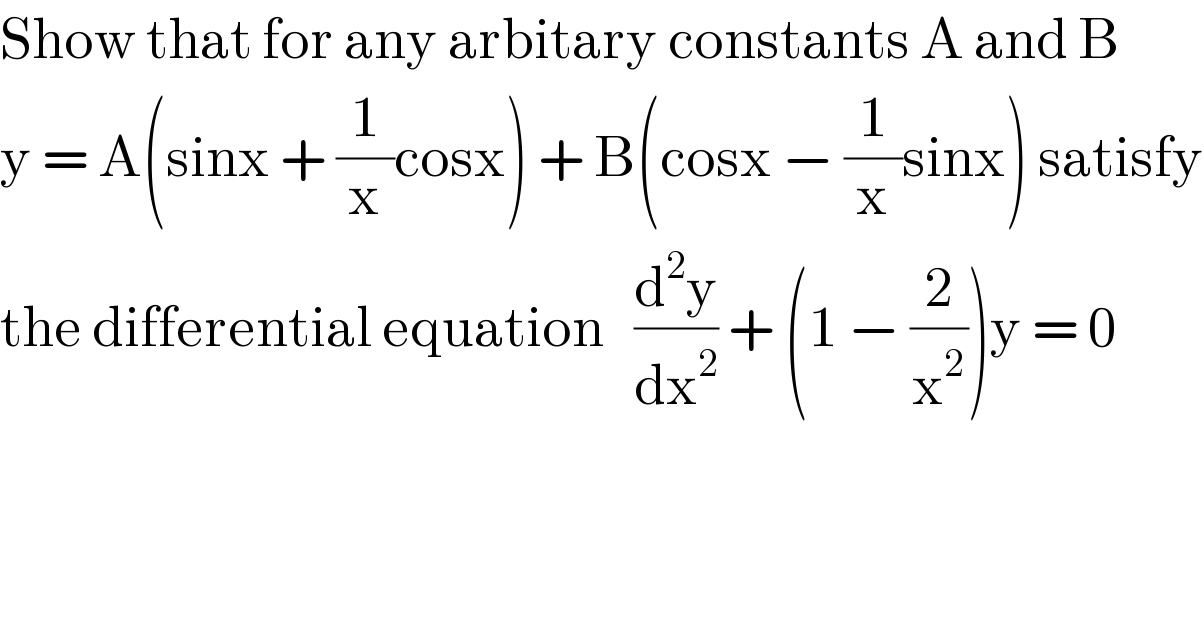
Previous in Differential Equation Next in Differential Equation
Question Number 9011 by tawakalitu last updated on 13/Nov/16

$$\mathrm{Show}\:\mathrm{that}\:\mathrm{for}\:\mathrm{any}\:\mathrm{arbitary}\:\mathrm{constants}\:\mathrm{A}\:\mathrm{and}\:\mathrm{B} \\ $$$$\mathrm{y}\:=\:\mathrm{A}\left(\mathrm{sinx}\:+\:\frac{\mathrm{1}}{\mathrm{x}}\mathrm{cosx}\right)\:+\:\mathrm{B}\left(\mathrm{cosx}\:−\:\frac{\mathrm{1}}{\mathrm{x}}\mathrm{sinx}\right)\:\mathrm{satisfy} \\ $$$$\mathrm{the}\:\mathrm{differential}\:\mathrm{equation}\:\:\:\frac{\mathrm{d}^{\mathrm{2}} \mathrm{y}}{\mathrm{dx}^{\mathrm{2}} }\:+\:\left(\mathrm{1}\:−\:\frac{\mathrm{2}}{\mathrm{x}^{\mathrm{2}} }\right)\mathrm{y}\:=\:\mathrm{0} \\ $$
